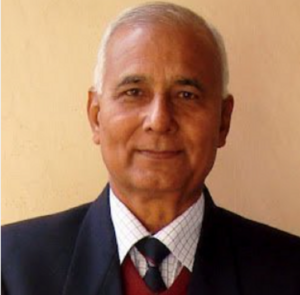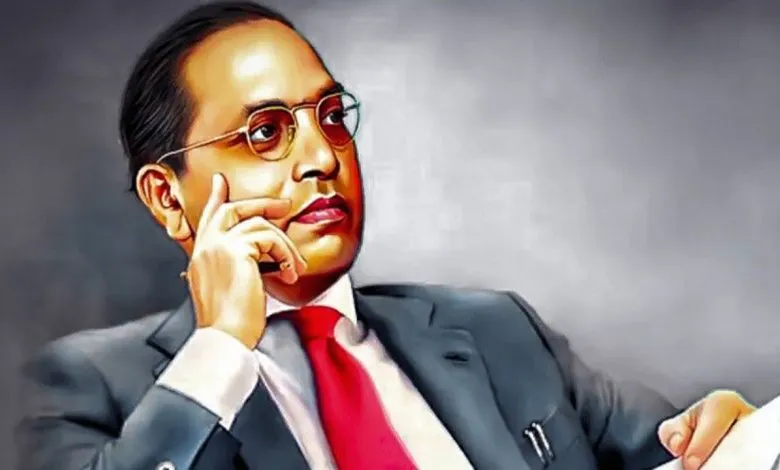SR Darapuri, National President, All India Peoples front

(Asian independent) Dr. Bhimrao Ramji Ambedkar, often referred to as Babasaheb, left an indelible mark on India’s political landscape through his multifaceted roles as a jurist, economist, social reformer, and politician. His political legacy is rooted in his relentless fight against social discrimination, his instrumental role in shaping India’s Constitution, and his advocacy for the rights of marginalized communities, particularly the Dalits (formerly known as “Untouchables”). Here is an overview of his legacy and its relevance in contemporary times:
Political Legacy
- Architect of the Indian Constitution: As the chairman of the drafting committee, Ambedkar was the principal architect of India’s Constitution, enacted in 1950. He ensured it enshrined principles of equality, liberty, and fraternity, drawing from global democratic ideals while addressing India’s unique social challenges. His inclusion of fundamental rights, affirmative action (reservations for Scheduled Castes and Tribes), and the abolition of untouchability (Article 17) reflected his vision of a just society.
- Champion of Social Justice: Ambedkar’s political ideology was grounded in dismantling the caste system, which he saw as a structural barrier to equality. His famous quote, “I was born a Hindu, but I will not die a Hindu,” underscored his rejection of caste-based oppression within Hinduism. He converted to Buddhism in 1956, inspiring millions of Dalits to follow suit, creating a socio-political movement known as Neo-Buddhism.
- Advocacy for the Marginalized: Through organizations like the Scheduled Castes Federation and his earlier Depressed Classes initiatives, Ambedkar mobilized Dalits and other oppressed groups politically. He fought for their representation, education, and economic upliftment, notably securing separate electorates for Dalits in the 1932 Poona Pact (later modified to reserved seats).
- Economic and Labour Reforms: As India’s first Law Minister and a trained economist, Ambedkar emphasized economic equality alongside social reform. He contributed to labour laws, including the eight-hour workday, and advocated for land reforms and state-led industrialization to reduce inequality.
- Symbol of Resistance: His debates with Mahatma Gandhi, particularly over separate electorates, highlighted his uncompromising stance on Dalit autonomy. While Gandhi saw untouchability as a moral failing to be reformed within Hinduism, Ambedkar viewed it as a systemic issue requiring radical political solutions.
Relevance Today
Ambedkar’s legacy remains profoundly relevant in 2025, as India and the world grapple with inequality, identity politics, and social justice:
- Caste and Social Inequality: Despite legal abolition, caste-based discrimination persists in India. Dalits still face violence, exclusion, and economic disadvantage, making Ambedkar’s call for annihilation of caste a living debate. Movements inspired by him, such as the Dalit Panthers and contemporary Dalit activism, continue to challenge upper-caste dominance.
- Constitutional Values: In an era of rising populism and debates over secularism and rights, Ambedkar’s emphasis on constitutional morality—upholding justice, equality, and liberty—serves as a benchmark for democratic integrity. His vision guides judicial and political discourse on issues like reservation policies and minority rights.
- Global Inspiration: Ambedkar’s ideas resonate beyond India, influencing global struggles against systemic oppression, such as the Black Lives Matter movement. His blend of social reform with political empowerment offers a model for addressing structural racism and inequality worldwide.
- Education and Empowerment: His famous slogan, “Educate, Agitate, Organize,” inspires grassroots movements today. Education remains a key tool for uplifting marginalized communities, and Ambedkarite organizations push for equitable access in an increasingly competitive world.
- Political Mobilization: Ambedkar’s legacy fuels Dalit political parties like the Bahujan Samaj Party (BSP) and influences broader coalition-building among oppressed groups (Bahujans). However, the fragmentation of Dalit politics and co-option by mainstream parties highlight both the enduring impact and the challenges of his vision.
In essence, Ambedkar’s political legacy is a clarion call for equality and dignity, rooted in pragmatism and radical reform. Today, as societies confront persistent inequities—whether caste in India or race and class globally—his ideas remain a beacon for those seeking justice through democratic means. His relevance lies not just in what he achieved, but in the unfinished work he left behind for future generations to pursue.









